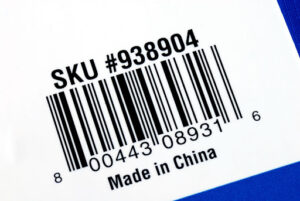If you have a Minimum Advertised Price (MAP) policy in place for your products, it’s important to make sure that your sellers are complying with it. Otherwise, you could be missing out on potential sales and revenue. Here’s what you need to know about making sure your sellers are MAP-compliant.
Define your minimum advertised price (MAP) policy
Your minimum advertised price (MAP) policy is an essential part of running your own business. It helps to ensure that no matter where you advertise, your prices are consistent and respected. This helps with brand recognition and customer loyalty. Additionally, it gives smaller businesses the fighting chance they need – it prevents larger companies from undercutting them and encourages fair trade. By adhering to a MAP policy, you’re following industry standards and regulations for pricing, protecting both yourself and your customers in the process.
Communicate your MAP policy to your sales channel
As a business, having a MAP policy is essential in order to ensure fair competition and margins. That’s why it’s important that you communicate your MAP policy to the sales channel you work with. Giving them all the information they need will ensure that everyone is adhering to your policy, while you still benefit from opportunities resulting from collaboration with partners. It’s key to set clear boundaries from the outset and as part of an ongoing relationship, keep your sales channel informed to make sure that everyone is on board.

Monitor compliance with your MAP policy
Having a MAP policy in place is a great way to make sure you stay competitive, but if it’s not properly monitored and enforced it will be virtually useless. It’s important just to have checks in place to ensure that your partners abide by your MAP policy. Keep in mind that even if a partner is found to be in violation of your MAP policy, you don’t necessarily need to terminate the relationship — they may merit a warning or suffer other penalties. Regular audits should help you keep an eye on how well everyone is respecting your MAP policy so that nothing slips through the cracks.
Take action if your MAP policy is violated
If you believe your MAP policy has been violated, it is important to take action. Companies that enforce their MAP policies firmly set themselves up for success in the long term by protecting their reputation from those who are willfully disregarding the policy. Taking action to stop the violation not only keeps responsibility with the perpetrator but also ensures a level playing field for all sellers of your company’s products. As such, when assessing any possible violation and how to respond, it is important to do so promptly and with the assurance that you will hold anyone who violates your MAP accountable. You’ll have peace of mind knowing that you’re doing what’s best for your brand in the long run.
Remember, it’s important to define your policy, communicate it to your sales channel, and monitor compliance. If you take these steps, you’ll be on your way to preventing price erosion and protecting your brand.




